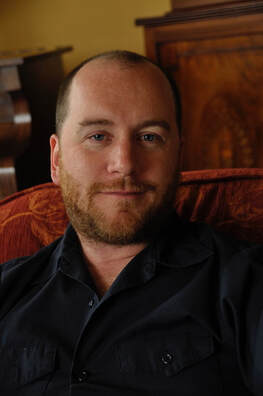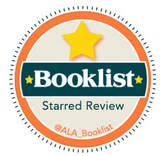 What is the name of the piece that you have in Grabbed? “One in Four.” What was the inspiration for your piece? What compelled you to write it? One in Four is an Irish charity that supports adults survivors of sexual abuse, offering legal advocacy and counselling services. This poem pays tribute to their amazing work. The name of the non-profit refers to a troubling statistic: According to an Irish Times article from 2018, “Current but outdated statistics state that one in four women and one in six men have experienced some form of sexual abuse.” Here is the link: The poem was part of a group of poems that I wrote between 2009 and 2012 and which was later published as a section of my first collection, Waiting for Saint Brendan and Other Poems (Salmon Poetry, 2012). Here is some background: In 2005, when I was 33, I started a counselling session by saying, “I think I was abused.” After the words left my mouth, it took seconds for almost 15 years of denial to crumble. I had always seen my “special friendship” with my abuser—a charismatic Benedictine monk / teacher from a prominent Sinn Féin family in Belfast—as “a relationship,” and “a romance,” and had hidden from myself the troubling and abusive aspects, of which there were many. (The grooming and abuse took place at an elite boarding school between 1989 and 1991 when I was 16-18). After reporting him to the school (he was “defrocked” / laicised by the Vatican and ejected from the school and the priesthood) and, later, facing the school in mediation, I used One in Four’s legal advice services to finally report him to the Irish police. Although the police were very supportive and presented a compelling book of evidence, along with my contemporaneous diaries detailing the abuse, The Director of Public Prosecution felt they did not have a case because, they said, I had “consented,” which is dark ironic. I was 16 when the grooming began, and just 17 when the physical part of it started, which was the age of consent at the time. I cannot help being left with the impression that the Irish legal establishment doesn’t understand how the grooming process works: how a young person is tricked into believing that it was something they initiated or wanted. What compelled you to submit your work for this anthology? Was it a difficult decision? If so or if not, why? Given the fact that the anthology is a #MeToo anthology, it felt appropriate to submit this poem, as it hinges on the lines “Until it can be said, / until I can say me too, / the crime will continue.” Was it a difficult decision? I think it is always difficult to make these experiences public, but it’s also important to step forward, both for myself and for others: as I say in the poem, “to hold space for those who can’t speak yet. / …Hold the line.” Here I’m thinking of the poetic line, but also of lines of battle. The line is formed by all those who have gone through this experience, but also all their allies; if they lock arms, then change will come. Why did you choose this particular form or genre for this piece? The subgenre of the book is, I think, located somewhere between confessional and neo-confessional modes: most of the poems follow Emily Dickinson’s suggestion to “tell the truth but tell it slant.” A lot of my poems about abuse in this book use metaphor to both protect the speaker but also to find an image that can give us greater access to an experience that is difficult to convey. However, this poem is more direct and political. Can you speak to the evolution of writing your piece? How long did it take you to write this piece, including revision? I can’t say how long it took me to write this specific poem. I think I wrote it quite quickly, perhaps in 2009 or so, and then revisited it while I was studying at NYU’s MFA in Creative Writing Program, where I received a lot of support from fellow students and teachers like Kimiko Hahn and Sharon Olds. I think it’s important to say that after I discovered I’d been sexually abused, it took me from 2005 until 2009 to write anything more than diary entries about those experiences, which constituted a form of Stockholm Syndrome (In Trauma and Recovery, Judith L. Herman talks about how sexual abuse can have much in common with the experience of being a hostage or a cult member, where the victim takes on the point of view of the abuser, which was true in my case. This kind of gas lighting constituted an abnegation of myself). Then between 2009-2012 or so, I started to find the images for it, and wrote around 40 poems about my experiences, some of which were published in the book. I don’t try to write about this subject or necessarily want to. It was forced upon me and I have to write it. That part of it can’t be changed, but I try to do something positive with the work and assist others. The activist part of it isn’t my goal at the moment of writing; but it is my goal at readings or when speaking about it. What do you feel the impact of the #MeToo movement has been on your work, if any? I think I experience #MeToo from the point of view of an ally. Although I have experienced sexual violence, given that this movement is about women who are speaking what has happened to them at the hands of men who attempted to silence them, I think it is important for men to be careful and sensitive and to not attempt to take centre stage. I could be wrong in this—perhaps I could have stepped forward in a more public way and found a more direct sense of community with other survivors, but I was burnt out after the various ways I had already fought my abuser and was trying to make living well my best revenge. Although he is not on a sex offender’s list, up to this point, I have unfortunately exhausted direct legal options. More ways might come through writing. Indeed, two-thirds of my next book, Crash Centre, is about the experience and is more direct than my first collection. Finally, I don’t think #MeToo has impacted my writing itself, but it certainly inspires me as a person and as a survivor. What would you say to another writer who has been uncomfortable or silent about their experience? How can they begin to share their experiences? All I can say is that writing about it for yourself (and / or for publication) can be very helpful and therapeutic. I would suggest seeing a therapist while accessing these experiences, and taking it slowly. My experience has been that writing about it one poem at a time is a healing process, though the healing can be fierce. At the time of writing I was often flooded with the past in a post traumatic sense, and was lucky to have a good therapist and a community of writer friends who were either doing something similar or who were open to my process. My goal in tackling the subject is to start from a (semi-) therapeutic place, and to end with a work of literature, hopefully! What was really helpful was, in each poem, to find an image to take me into and through. Here’s an example: for the poem “Great White Shark” in my first book, I started the draft with a found poem from a Wikipedia entry about the remora fish, the “sucker” fish that attaches itself to sharks. After leaving office hours with Kimiko Hahn, and her saying that the poem wasn’t fully alive yet, I found myself thinking and muttering, “I was your remora.” Although that line didn’t make it into the final version, it was the poem’s “through line”: the remora fish speaking to the Great White. In many ways I have found that imagery is, psychically and artistically, both the vehicle and the protection. Sharon Olds’ poem “Elder Sister” uses the image of the older sister as a dented shield, who protected her younger sibling from the worst of the abuse, even though they both endured it. For me, images are shields that have gone into battle with me and I won’t be setting them down any time soon. David McLoghlin is a poet and literary translator who lived in New York City between 2010 and 2020, where he attended New York University’s Creative Writing Program from 2010 to 2012. He has now relocated to his native Ireland with his wife and baby daughter. His books are Waiting for Saint Brendan and Other Poems (Salmon Poetry, 2012) and Santiago Sketches (Salmon Poetry, 2017), which is set entirely in Santiago de Compostela, Spain. Salmon will publish his third collection, “Crash Centre”, in 2021. His chapbooks are Sign Tongue, which won the Good Morning Menagerie Chapbook-in-Translation Prize in 2014, and The Magic Door (Blue Canary Press, Milwaukee, 1993). He is also one of three contributors to Suns, a chapbook of translations (Cardboard House Press, 2017). His writing has been broadcast on WNYC’s Radiolab, published extensively in journals like Poetry Ireland Review, Barrow Street and The Stinging Fly, and anthologised in Ireland and the USA. He has received prizes, grants and fellowships from the Sewanee Writers’ Conference, The Patrick Kavanagh Awards, New York University and Ireland’s Arts Council, has attended artists’ retreats at The Tyrone Guthrie Centre at Annaghmakerrig several times, and mentored and taught creative writing and literature at Sunken Garden Poetry Festival; University College, Dublin; New York University; Coler Specialty Hospital, and at Hunts Point Alliance for Children in the South Bronx, where he was Resident Writer. www.davidmcloghlin.com
0 Comments
Leave a Reply. |
Grabbed BlogHave a blog idea for us? Submit it here. Archives
October 2020
Categories |
|
BUY GRABBED
|
If you or anyone you know is a victim of domestic violence, please call The National Domestic Violence Hotline: 1-800-799-7233 1-800-787-3224 (TTY) En Español: 1.800.799.7233 |
 RSS Feed
RSS Feed







